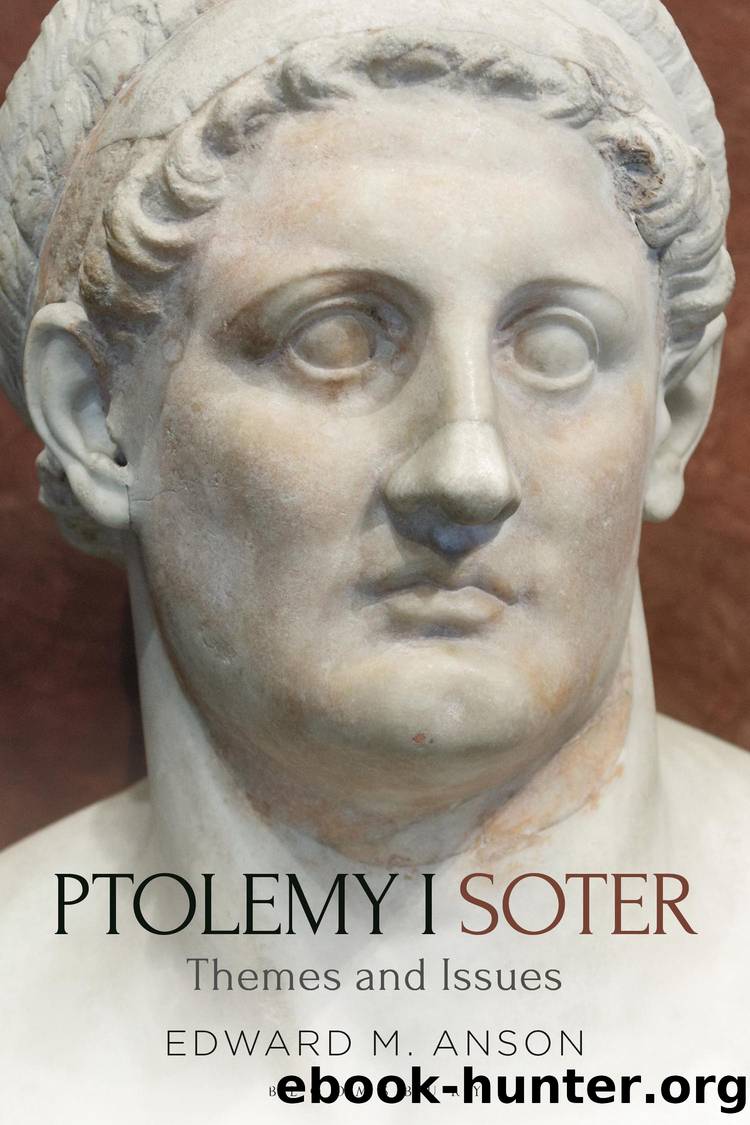Ptolemy I Soter by Edward M. Anson;

Author:Edward M. Anson; [Anson, Edward M.]
Language: eng
Format: epub
ISBN: 9781350260825
Publisher: Bloomsbury UK
Published: 2023-03-03T00:00:00+00:00
When a young man, the son of a brave father, but not himself having any reputation for being a good soldier, suggested the propriety of his receiving his fatherâs emoluments, Antigonos said: âMy boy, I give money and presents for the excellence of a man, not for the excellence of his father.â
Plut. Mor. 183D
During the reign of Alexander, our sources often use the two terms interchangeably primarily because their sources were writing during the transitional period and because the two terms with respect to function often were identical. While a kingâs philoi in many respects at the various Hellenistic royal courts were similar in function to the former hetairoi, they also served in the capacity of those who in the earlier period were more commonly called xenoi and proxenoi. This was a practice that began in the Greek Archaic Age (800â479). The aristocratic elites of the various communities established relations based on the institution of xenia, guest-friendship. Proxenia was a more formal and state-oriented form of this ancient practice. Xenia was a system of hospitality establishing reciprocal, often hereditary, relationships between individuals and families in which significant services would be provided as a matter of courtesy.25 These services could be as little as personal generosity or the providing of political or military support (Mitchell 2002: 13). These individuals remained in their home communities serving in the capacity designated by the terms as xenoi and proxenoi. There were no permanent foreign embassies in the various states (Perlmann 1958: 187). At a formal level, states established connections with foreign governments through local individuals given the honor of representing a foreign stateâs interests in a relationship between the two states. This was called proxenia.26 Here a state would contract a relationship with a proxenos, a person representing the interests of the contracting state in their own community (Antiph. frg. 67). These were then relationships on the state level. Those who served as proxenoi were usually prominent individuals who took active roles in the political life of their own cities. In this traditional relationship the proxenos was not a foreign agent working for the foreign party at the expense of his own state. Loyalty to oneâs own state was paramount. In the words of Plato (Leg.1. 642b):
Download
This site does not store any files on its server. We only index and link to content provided by other sites. Please contact the content providers to delete copyright contents if any and email us, we'll remove relevant links or contents immediately.
The Power of Myth by Joseph Campbell & Bill Moyers(925)
Half Moon Bay by Jonathan Kellerman & Jesse Kellerman(908)
A Social History of the Media by Peter Burke & Peter Burke(879)
Inseparable by Emma Donoghue(844)
The Nets of Modernism: Henry James, Virginia Woolf, James Joyce, and Sigmund Freud by Maud Ellmann(737)
The Spike by Mark Humphries;(719)
The Complete Correspondence 1928-1940 by Theodor W. Adorno & Walter Benjamin(703)
A Theory of Narrative Drawing by Simon Grennan(703)
Ideology by Eagleton Terry;(655)
Bodies from the Library 3 by Tony Medawar(647)
World Philology by(645)
Culture by Terry Eagleton(642)
Farnsworth's Classical English Rhetoric by Ward Farnsworth(640)
A Reader’s Companion to J. D. Salinger’s The Catcher in the Rye by Peter Beidler(611)
Adam Smith by Jonathan Conlin(605)
Game of Thrones and Philosophy by William Irwin(592)
High Albania by M. Edith Durham(589)
Comic Genius: Portraits of Funny People by(581)
Monkey King by Wu Cheng'en(575)
